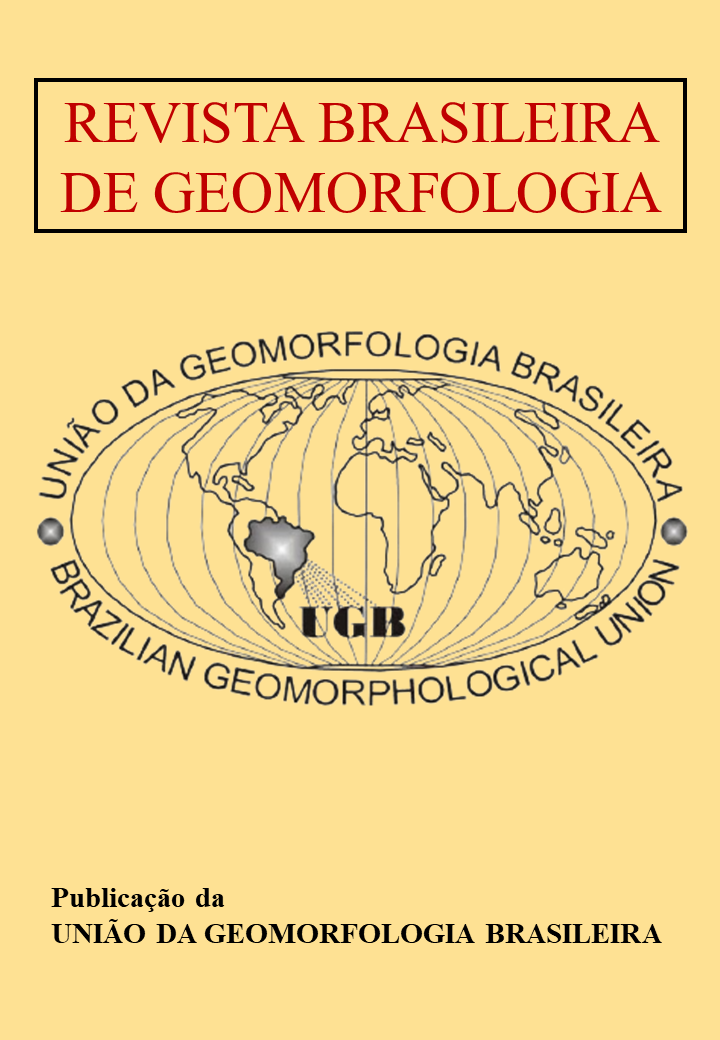Drainage rearrangement in semi-arid intermountain depressions: a case study in South America
DOI:
https://doi.org/10.20502/rbgeomorfologia.v24i4.2418Palavras-chave:
River capture, Semi-arid, Brazil, Drainage networkResumo
River captures are drainage rearrangements commonly reported in divides of high topographic gradient, triggered by headward erosion. Captures also occur in divides of low topographic gradient through differential fluvial incision between rivers, however, in a smaller proportion of reports, mainly in dry regions. Thus, this research contributes to the theme by investigating possible river captures in the semi-arid equatorial margin of South America related to the Jaguaribe River, which flows over intermountain depressions. This study used morphological and sedimentary evidence obtained in field expeditions and by application of morphometrics (local relief, paleotopographic modelling and χ variable). Among the results, the following stand out: depressions drained by radial tributaries upstream of water gaps; opposing headwaters with relative extension that drain low-relief divides, damming fluvial-lacustrine sediments and transfers signatures of upstream areas. These data suggest drainage rearrangements and a possible endorheic phase during the study area evolution. Continuous incision of the Jaguaribe River conditioned river captures by rupture of paleodivides supported by structural ridges (shear zones). In this context, the drainage rearrangements were effective for the configuration of the Jaguaribe River, even in a region of low topographic gradient and water flow instability.
Downloads
Downloads
Publicado
Como Citar
Edição
Seção
Licença

Este trabalho está licenciado sob uma licença Creative Commons Attribution-NonCommercial 4.0 International License.
Autor(es) conservam os direitos de autor e concedem à revista o direito de primeira publicação, com o trabalho simultaneamente licenciado sob a Licença Creative Commons Attribution que permite a partilha do trabalho com reconhecimento da autoria e publicação inicial nesta revista.










